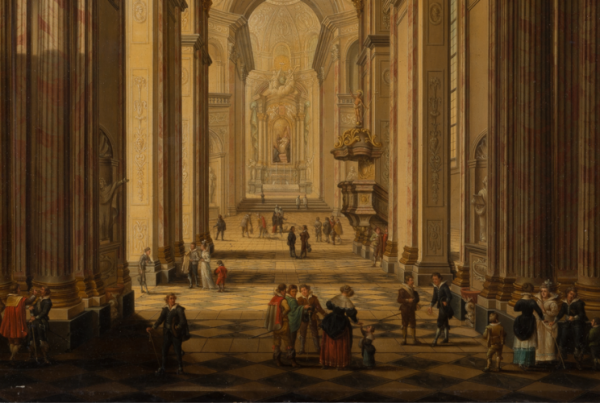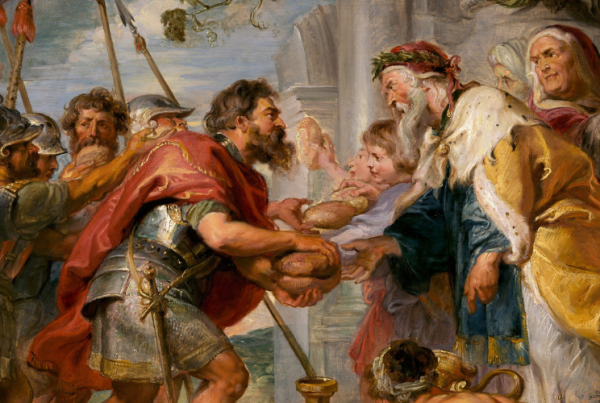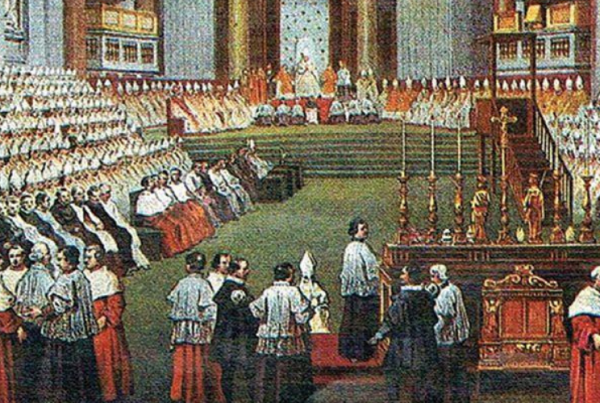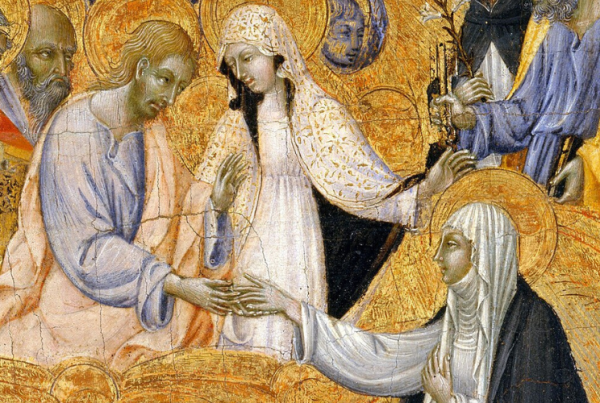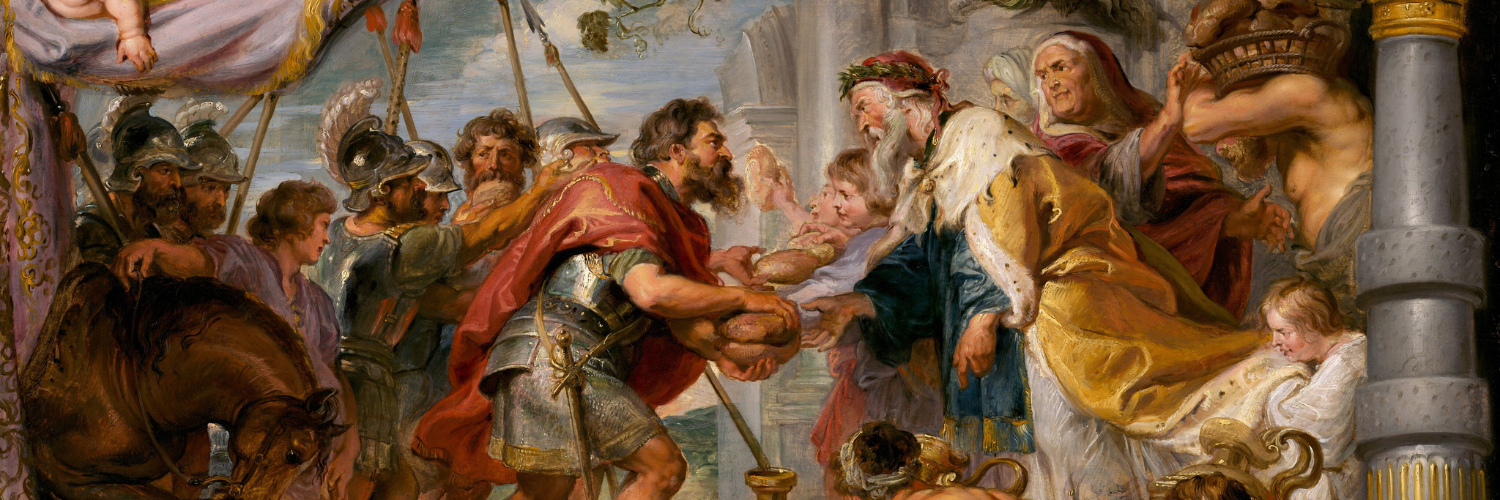
The Church is Family
Fr. Paul Stein
St. Paul, in his letters in the New Testament, often refers to his audience as “brothers” or “brothers and sisters.” Is it hyperbole? Was it the first-century equivalent of “bruh”? Quite to the contrary, St. Paul meant it: in Christ Jesus, we are all brothers and sisters. There is an old expression to indicate that the bonds of family are stronger than the bonds of friendship: blood is thicker than water. In the end, the blood of Christ is thicker than anything else.
It might surprise you, but adultery was a common image in the Old Testament for Israel’s unfaithfulness to God. When the Israelites sinned and worshipped other gods, prophets such as Jeremiah, Ezekiel, and Hosea spoke on God’s behalf, comparing such behavior to adultery. The reason is that God’s relationship to Israel was portrayed as a type of marriage. When God spoke to Abraham and promised to make of him a great nation, he made a covenant, not a contract, with Abraham and his descendants.
A contract is simply a business deal: party A will do this, and party B will do that. If party B doesn’t fulfill its part of the deal, party A is not obligated to fulfill its part. Once each side has completed its part of the deal, the relationship is over; like making the final payment to the contractor who installs new windows in your house. In contrast, a covenant establishes a blood relationship; it establishes a family where there was none previously. Marriage is the covenant we encounter daily.
he made a covenant, not a contract, with Abraham and his descendants
The concept of a covenant is an ancient one that spans ethnic groups, cultures, nations, and time. In times past, groups of unrelated soldiers became “brothers” by the ceremony of (literally) mixing their blood, usually through a cut on the hand or arm; hence the phrase “blood brothers.” In the Old Testament, we see a more Middle Eastern custom of Abraham’s day in chapter 15 of Genesis. God has Abraham cut several animals in half, laying each half apart from each other with a pathway between them. Then in a sacred trance, God manifests his presence “walking” between the halves using a smoking fire pit and flaming torch. In those times, each party to a covenant would walk between the animal’s halves to establish the family relationship, also indicating that should one party violate the covenant, may God (the gods) split the violator in half.[1]
The idea of covenant is found throughout the Old Testament. For example, God made a covenant with Noah; he renewed the covenant he made with Abraham through Moses at Mt. Sinai. Ultimately, these covenants and their renewal prepared the way for Jesus, who established the new and everlasting covenant in himself. Jesus is the Lamb of God whose blood establishes us as God’s adopted children with the promise of living with him forever. At the Last Supper:
While they were eating, Jesus took bread, said the blessing, broke it, and giving it to his disciples said, “Take and eat; this is my body.” Then he took a cup, gave thanks,* and gave it to them, saying, “Drink from it, all of you, for this is my blood of the covenant, which will be shed on behalf of many for the forgiveness of sins. I tell you, from now on I shall not drink this fruit of the vine until the day when I drink it with you new in the kingdom of my Father.” (Matt 26:26-29)
St. Paul’s entire letter to the Hebrews is an excurses on Christ as the High Priest who inaugurates the new covenant:
For this reason, he is the mediator of a new covenant: since a death has taken place for deliverance from transgressions under the first covenant, those who are called may receive the promised eternal inheritance. Now where there is a will, the death of the testator must be established. A will takes effect only at death; it has no force while the testator is alive. Thus not even the first covenant was inaugurated without blood. (Hebrews 9:15-18, 24)
We, who live 2000 years later, enter that covenant through initiation into the Church. Just as the Jewish people would circumcise their (male) children as a sign of the covenant, Christ gave the Church Baptism to wash away sins and adopt someone into God’s family:
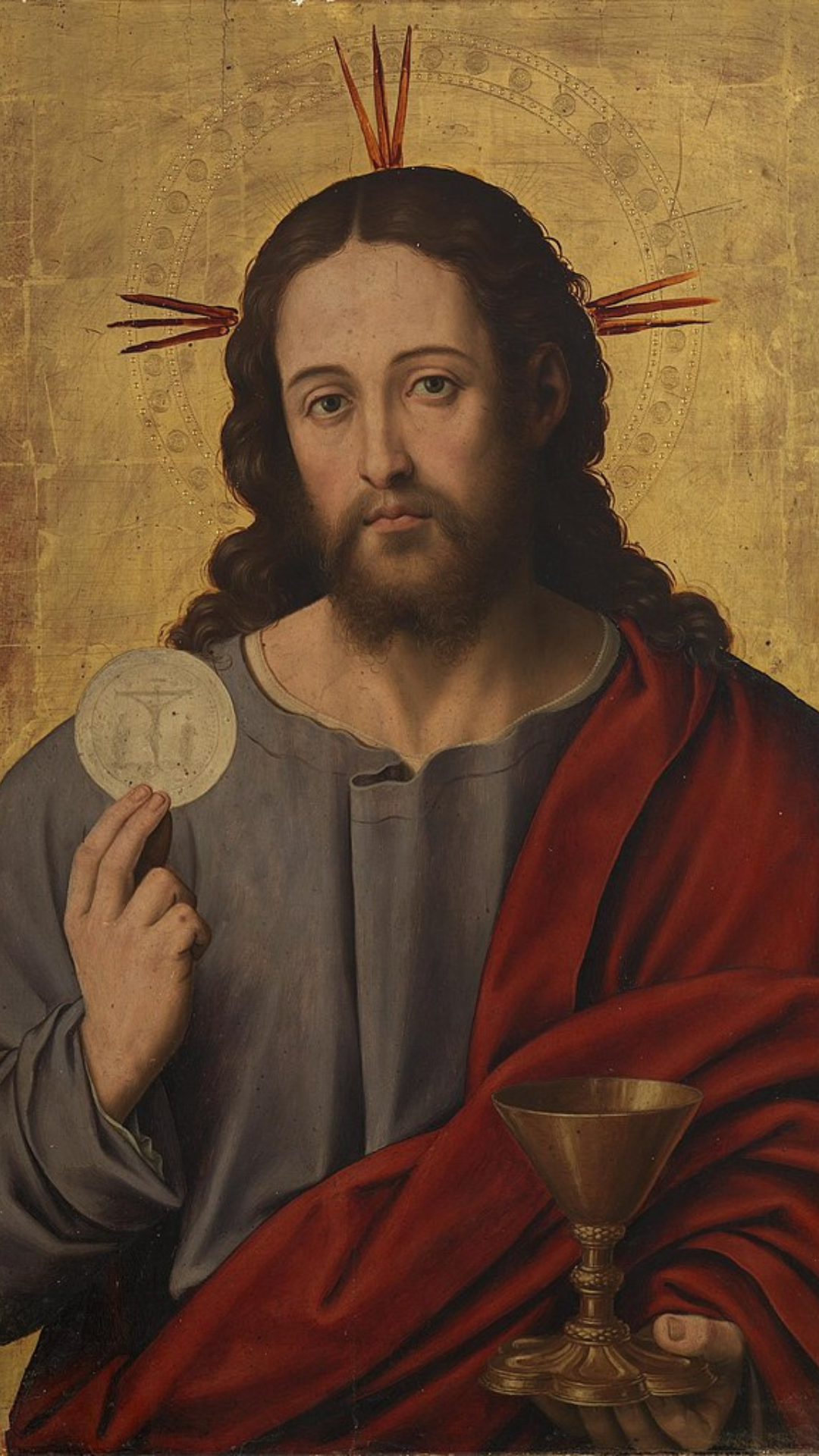
“Or are you unaware that we who were baptized into Christ Jesus were baptized into his death? We were indeed buried with him through baptism into death, so that, just as Christ was raised from the dead by the glory of the Father, we too might live in newness of life” (Romans 6:3-4).
The sacraments of Confirmation and Eucharist complete that initiation to make someone a full member of the Church, the family of God. For us, like St. Paul, greeting another member of the Church is to greet a brother or sister in the Lord. We have all been adopted into the family of God through Christ Jesus. In ancient times, adoption was not seen as somehow being a “lesser” member of the family. In the Roman Empire, a biological child was not truly considered a son or daughter until the father of the family accepted the child. Hence, in pagan Rome, infants that were not accepted were at times exposed, meaning placed out in nature or “on the hillside” to die from exposure to the elements or wild animals.[2] A Roman father could adopt a slave or anyone else not biologically related and that adopted son or daughter was truly a son or daughter as far as society, religion, and the law were concerned.
This is why certain things at mass seem odd to outsiders, but not to those in Christ. What the priest says and how we respond shows that the “brothers and sisters” include those in heaven and purgatory as well as those on earth: everyone living in Jesus Christ. It is why communion is only given to those initiated and belong to the Church. Intimacy belongs in marriage: a wife should not have sexual relations with a man, not her husband, nor should a husband have sexual relations with a woman who is not his wife.
What This Means For Us
As members of the Church, we have been initiated into a covenant; we have been adopted into the family of God. We couldn’t pay for it if we wanted to do so; there is not enough money in the world that could compensate God for what he has done for us in Christ Jesus. Rather, we have been given a gift, and as brothers and sisters, need to live godly lives as we are now called children of God.
Footnotes
[1] Think of how much more exciting our wedding ceremonies would be if we included something like this…
[2] If that sounds harsh, keep in mind two things: (1) it was the Church in her conversion of the Roman Empire that brought this practice to an end. (2) We are similarly barbaric today in the practice of abortion, directly killing innocent human life at its beginning.
For Further Reading On This Topic
